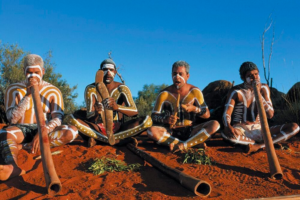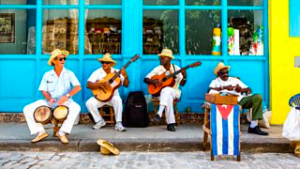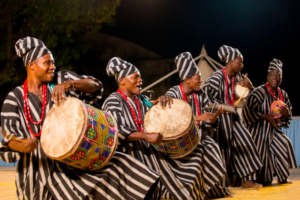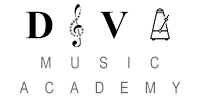“The only truth is music” – Jack Kerouac
“Since neither the enjoyment nor the ability to produce music are useful – even in the slightest – to man, they must be listed among the most mysterious of the skills with which he is endowed.” – Charles Darwin, Origin of Man
“So familiar, this Chopin, that I think his soul should be resurrected only among friends,” – T.S. Elliot, Portrait of a lady
The scientist and the poet. Which of the two best understands human nature?
Music exists in all cultures, however “primitive” or isolated they might be.
The various tribes of Australian Aborigines, although they speak many different languages, they can communicate through their songs.

The Eskimos settled their differences by singing contests, and the gravest insult to someone was to be told that he could not sing.
The natives of the Arnhem region use music as a medium that teaches them everything they need to know about their culture and their place in the natural and supernatural worlds.

In Bali, gamelans, the improvised orchestras of each village, were part of social life, to such an extent that there was no separate word for music. Music is the village.
In many tribes of Africa every man was also a musician, regardless of his “profession”.

And their music is so complex that a westerner has a hard time understanding it.
In Ancient China, music was about man’s relationship with the universe. With this, man assumed the responsibility of stimulating or shaking the balance of the world.
Among the pre-Hellenic Cycladic figurines, there are also many musicians.
Pythagoras identified Creation with Music. And the importance of music for the ancient Greeks is well known.
Evolutionary psychology seems to agree with human evolution and ethnomusicology.
Children enjoy music before they can talk, before they can even walk. Research done in 2006, showed that human babies are born with a perfect ear.
(A perfect ear is the ability to recognise the tonality of a sound without having to compare it to someone else. Hearing a car horn and knowing it is “la”).
Children are born with their minds ready to receive music (as is the case with the rules of language). After all, from the first moment of their existence, long before they are born, they live in rhythm. The main and continuous “musical” background of intrauterine life is the beating of the mother’s heart.
Merlin Donald, in his book “The Origin of the Modern Mind”, argues that music is the cornerstone of human civilisation.
(Here let’s remember Zorba the Greek, who, when he “ran out” of words, would get up and dance syrtaki to explain to his interlocutor what he couldn’t tell him by words).
Oliver Sacks, the famous British neurologist, gives us many examples of the healing power of music.
People with aphasia, Parkinson, other with post-traumatic stress disorders, as well as schizophrenics, responded to music better than any other attempt at communication, as if it were embedded in the deepest levels of the mind.
A Parkinsonian lady, who had difficulty talking and walking, was able to dance and sing with the music and felt: “As if I suddenly remembered myself, my own living purpose.”

Alzheimer’s patients, who could not remember their names and their families, who could not recognise a shoe as a shoe or speak, people who lived without self-consciousness, managed to sing entire operas without hesitation or to play entire concertos (provided, of course, that they had musical training).
The case of an elderly virtuoso pianist, in the last stages of Alzheimer’s, is typical.
As he waited backstage at Carnegie Hall, for this last concert, he didn’t even know where he was or who he was. If they didn’t lead him to the piano he would just stare at the wall.
However, when the introduction of the concerto began and he put his hands on the keys, the demented old man became again the great pianist that everyone (except perhaps himself) remembered.
He played the entire concerto flawlessly and as soon as the music ended he returned to the darkness, ignoring the applause and tears of the audience.
“When the music’s over, turn out the lights”
We could say a lot more about music, but even with this little is seems that Darwin was wrong.
Music is not just useful to man, Music is necessary to him.
Beyond it’s so important social value, as a means that helps the interconnection of members, beyond its catalytic effect on the evolution of man, beyond the determination of identity (racial, national, personal), music offers something that is the quintessence of human existence: Enjoyment!
Sources
Musicophilia, by Oliver Sacks
Music, Society, Education by Christopher Small

